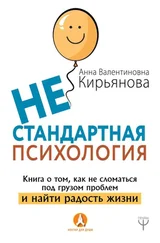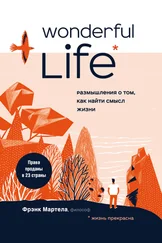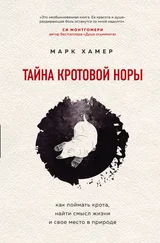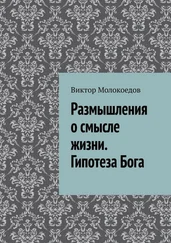Morris A. Okun, Ellen Wan Yeung & Stephanie L. Brown, “Volunteering by Older Adults and Risk of Mortality: A Meta-Analysis,” Psychology and Aging 28, no. 2 (2013), 564–577.
Michael J. Poulin, Stephanie L. Brown, Amanda J. Dillard & Dylan M. Smith, “Giving to Others and the Association Between Stress and Mortality,” American Journal of Public Health 103, no. 9 (2013), 1649–1655.
Stephanie L. Brown, Dylan M. Smith, Richard Schulz, Mohammed U. Kabeto, Peter A. Ubel, Michael Poulin, et al., “Caregiving Behavior Is Associated with Decreased Mortality Risk,” Psychological Science 20, no. 4 (2009), 488–494.
Elizabeth W. Dunn, Lara B. Aknin & Michael I. Norton, “Spending Money on Others Promotes Happiness,” Science 319, no. 5870 (2008), 1687–1688.
Lara B. Aknin, Christopher P. Barrington-Leigh, Elizabeth W. Dunn, John F. Helliwell, Justine Burns, Robert Biswas-Diener, et al., “Prosocial Spending and Well-Being: Cross-Cultural Evidence for a Psychological Universal,” Journal of Personality and Social Psychology 104, no. 4 (2013), 635–652.
Lara B. Aknin, Tanya Broesch, J. Kiley Hamlin & Julia W. Van de Vondervoort, “Prosocial Behavior Leads to Happiness in a Small-Scale Rural Society,” Journal of Experimental Psychology: General 144, no. 4 (2015), 788–795.
Jorge Moll, Frank Krueger, Roland Zahn, Matteo Pardini, Ricardo de Oliveira-Souza & Jordan Grafman, “Human Fronto-Mesolimbic Networks Guide Decisions About Charitable Donation,” Proceedings of the National Academy of Sciences 103, no. 42 (2006), 15623–15628.
Перевод Е. Цветковой.
Amy Wrzesniewski & Jane E. Dutton, “Crafting a Job: Revisioning Employees as Active Crafters of Their Work,” The Academy of Management Review 26, no. 2 (2001), 179–201,191.
Adam Grant, “8 Ways to Say No Without Ruining Your Reputation,” Huffington Post, March 12, 2014. https://www.huffpost.com/entry/8-ways-to-say-no-without_b_4945289.
Netta Weinstein & Richard M. Ryan, “When Helping Helps: Autonomous Motivation for Prosocial Behavior and Its Influence on Well-Being for the Helper and Recipient,” Journal of Personality and Social Psychology 98, no. 2 (2010): 222–244.
Martela et al., “Meaningfulness as Satisfaction of Autonomy, Competence, Relatedness, and Beneficence”; Martela & Riekki, “Autonomy, Competence, Relatedness, and Beneficence.”
Richard Taylor, “The Meaning of Life,” in Life and Meaning: A Philosophical Reader, ed. Oswald Hanfling, (Oxford: Blackwell, 1988), 39–48.
Lawrence C. Becker, “Good Lives: Prolegomena,” Social Philosophy and Policy 9, no. 2 (1992), 15–37, 20.
Letter from Tolstoy to N. N. Strakhov, April, 1876. Quoted in George Gibian, ed., Anna Karenina. A Norton Critical Edition (New York: W. W. Norton & Company), 751.
Rebecca J. Schlegel, Joshua A. Hicks, Laura A. King & Jamie Arndt, “Feeling Like You Know Who You Are: Perceived True Self-Knowledge and Meaning in Life,” Personality and Social Psychology Bulletin 37, no. 6 (2011), 745–756.
See, e.g., Rebecca J. Schlegel, Joshua A. Hicks, Jamie Arndt & Laura A. King, “Thine Own Self: True Self-Concept Accessibility and Meaning in Life,” Journal of Personality and Social Psychology 96, no. 2 (2009), 473–490.
Самоактуализация – стремление человека к наиболее полному выявлению и развитию своих личностных возможностей. В некоторых направлениях современной западной психологии самоактуализация выдвигается на роль главного мотивационного фактора в противовес бихевиоризму и фрейдизму, считающим, что поведением личности движут биологические силы, а его смысл заключается в разрядке создаваемого ими напряжения и приспособлении к среде. Подлинная самоактуализация предполагает наличие благоприятных социально-исторических условий. В психологии и педагогике гуманистического направления утверждается, что только с помощью самоактуализации человеку возможно реализовать себя, обрести смысл своего существования, стать тем, кем он способен стать, «а не тем, кем ему навязывают быть окружающие».
See Ryan & Deci, Self-Determination Theory.
E.g., Valery Chirkov, Richard M. Ryan, R. M., Youngmee Kim & Ulas Kaplan, “Differentiating Autonomy from Individualism and Independence: A Self-Determination Theory Perspective on Internalization of Cultural Orientations and Well-Being,” Journal of Personality and Social Psychology 84, no. 1 (2003), 97–110; Beiwen Chen, Maarten Vansteenkiste, Wim Beyers, Liesbet Boone, Edward L. Deci, Jolene Van der Kaap-Deeder, et al., “Basic Psychological Need Satisfaction, Need Frustration, and need Strength Across Four Cultures,” Motivation and Emotion 39, no. 2 (2015), 216–236.
Chirkov et al., “Differentiating Autonomy from Individualism and Independence.”
Авторы теории самодетерминации.
Richard M. Ryan & Edward L. Deci, “Self-Determination Theory and the Facilitation of Intrinsic Motivation, Social Development, and Well-Being,” American Psychologist 55, no. 1 (2000), 68–78.
Robert Wuthnow, Acts of Compassion: Caringfor Others and Helping Ourselves (Princeton, NJ: Princeton University Press, 1991).
Реляционность (от лат. relatio – отношение) – наличие отношений; условие существования, признак и общее свойство всех объектов, обладающих способностью к рефлексии (отражению иного в себе).
Пер. П. Самсонова.
Zeus states this to Aegistheus in Act II of Sartre’s play The Flies (Les Mouches), in Jean-Paul Sartre, No Exit and Three Other Plays (New York: Vintage Books, 1989), 102.
Frankl, Man’s Search for Meaning, 104.
Ryan & Deci, Self-Determination Theory.
See chapter 10 in Maclntyre, After Virtue.
Уладский цикл – это произведения ирландской литературы, состоят из ряда героических историй, касающихся жизни Конхобара мак Несса, короля Ольстера, великого героя Кухулина, сына Луга, их друзей, возлюбленных и врагов.
Читать дальше
![Фрэнк Мартела Wonderful Life. Размышления о том, как найти смысл жизни [litres] обложка книги](/books/390695/frenk-martela-wonderful-life-razmyshleniya-o-tom-k-cover.webp)











